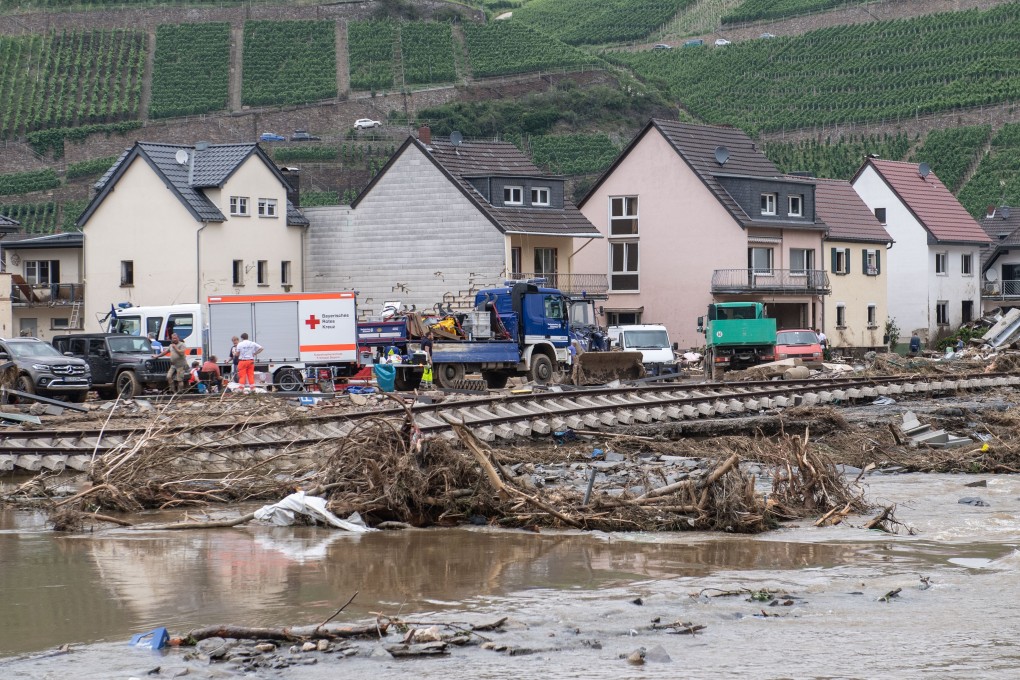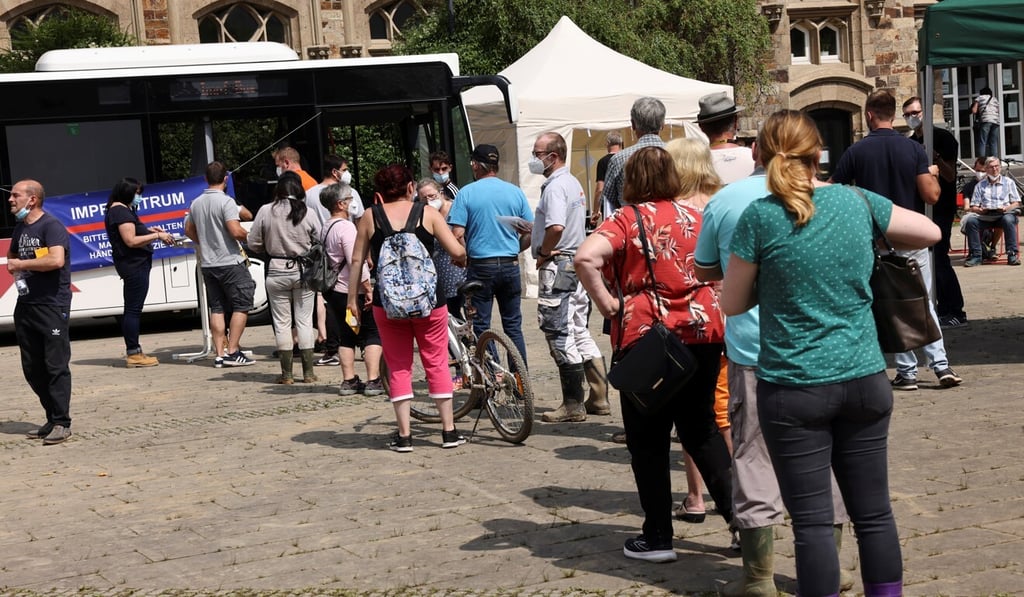German workers race to provide aid, Covid-19 vaccines in flood areas in bid to prevent health emergency
- Last week’s deadly freak floods wrecked basic services in the Ahrweiler district, leaving residents knee-deep in debris and without sewage or drinking water
- If the clean-up operation does not move swiftly ahead, more disease will come in the floods’ wake, just as many had come to believe Covid-19 was nearly beaten

Last week’s freak floods killed more than 160 people, and wrecked basic services in the hilly villages of the Ahrweiler district, leaving thousands of residents knee-deep in debris and without sewage or drinking water.
“We have no water, we have no electricity, we have no gas. The toilet can’t be flushed,” said Ursula Schuch. “Nothing is working. You can’t shower … I am nearly 80 years old and I have never experienced anything like it.”

In the village of Dernau, Allemagne, 39-year-old mother Carina Dewald said she lost everything when floods ravaged the area.
The petrol station where she worked as a manager with her husband was razed to the ground, and her house was left uninhabitable as waters from the river Ahr rose to the window ledges on the first floor.